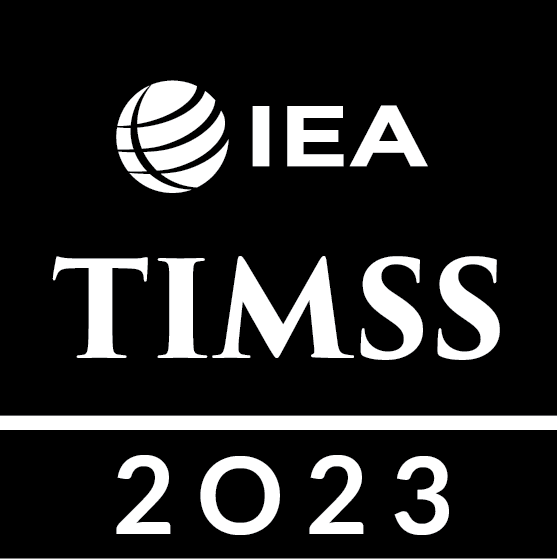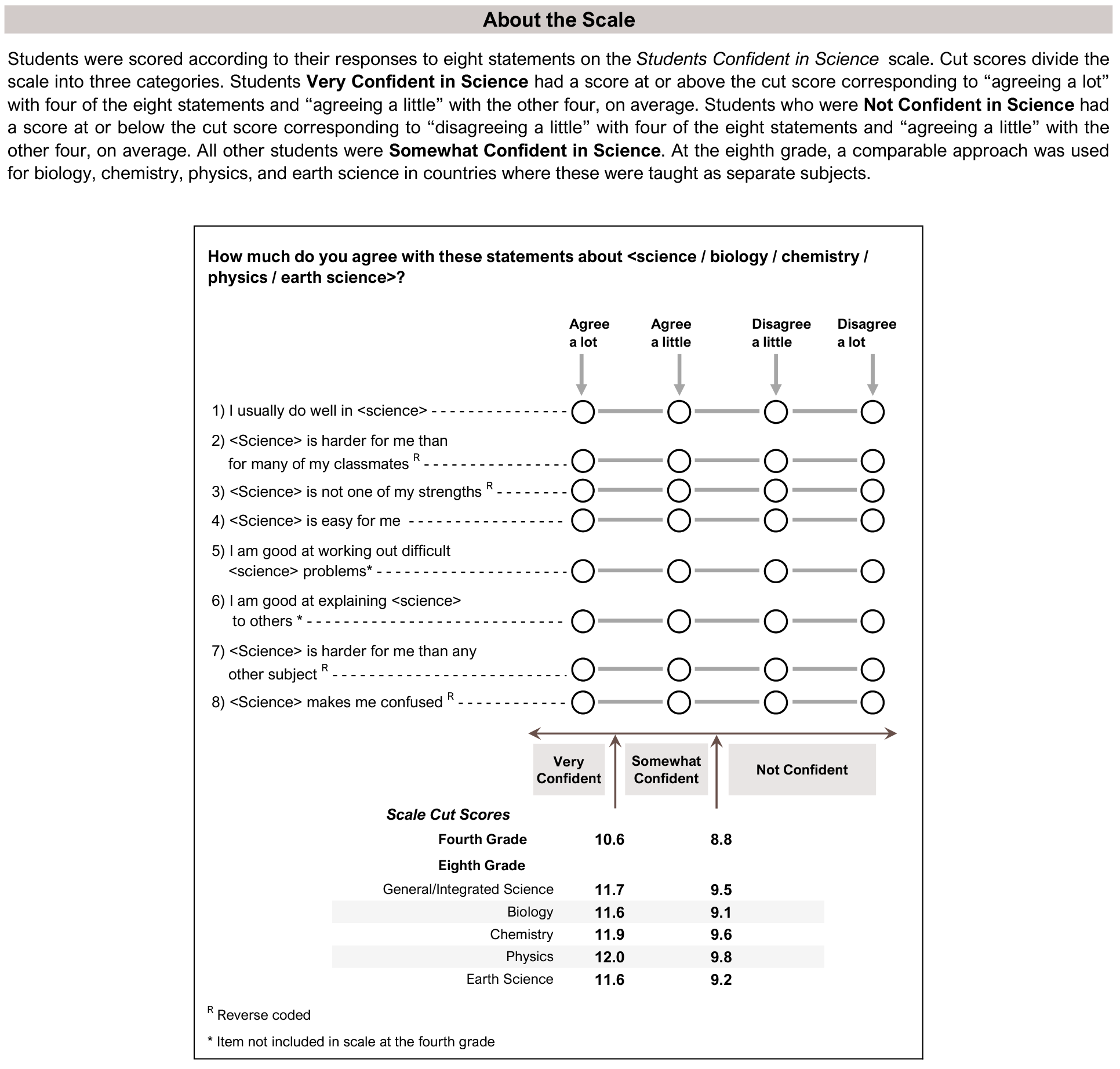Students Confident in Science
Student Experiences and Attitudes
Students Confident in Science
Students who are confident in science have much greater average achievement in the subject than their peers who are not confident in science. The items in the TIMSS 2023 Students Confident in Science scale (Exhibit 6.3.4) asked students to indicate their level of agreement with different statements about their confidence in science. In countries where eighth-grade science is taught as separate subjects, students responded to the statements for each subject in which they were enrolled. Students were grouped into three categories based on their responses: “very confident,” “somewhat confident,” or “not confident.”
Fourth-grade students were relatively evenly distributed internationally across the three scale categories (Exhibit 6.3.5). On average, about one-third of fourth-grade students were “very confident” in science (34%), about one-third were “somewhat confident” in science (35%), and about one-third were “not confident” in science (31%). There was a strong positive relationship internationally between feeling confident in science and average achievement in the subject area for fourth-grade students—a difference in average scale score of 67 points between students who are “very confident” and those who are “not confident” (530 vs. 463).
Across the science subjects, less than one-fifth of eighth-grade students on average were “very confident” in science, both for integrated science and the separate subjects, with percentages in this category ranging from 12 percent in physics to 17 percent in integrated science, biology and earth science (Exhibit 6.3.6a – 6.3.6e). Physics and chemistry had the most students, on average, who reported being “not confident” in the subjects (53% and 50%, respectively), although more than 30% of eighth-grade students fell into this category for all science subjects. The difference in average achievement between “very confident” and “not confident” students was largest in integrated science, where students who were “very confident” had an average achievement of 545 and students who were “not confident” had an average achievement of 455 (a difference of 90 points). Although still substantial, average achievement differences between students who were “very confident” and “not confident” were smaller for the separate science subjects, ranging from 64 points in earth science (495 vs. 431) to 83 points in physics (525 vs. 442).
Read More
Students Confident in Science
Science Grade 4

Very Confident in Mathematics
Somewhat Confident in Mathematics
Not Confident in Mathematics
This TIMSS context questionnaire scale was established in 2023 based on the combined response distribution of countries that participated in TIMSS 2023. To provide a point of reference for country comparisons, the scale centerpoint of 10 was located at the mean of the combined distribution. The units of the scale were chosen so that 2 scale score points corresponded to the standard deviation of the distribution. The separate scales for biology, chemistry, physics, and earth science were each established in 2023 using a comparable approach.
( ) Standard errors appear in parentheses. Because of rounding some results may appear inconsistent.
An “r” indicates data are available for at least 70% but less than 85% of the students.
An “s” indicates data are available for at least 50% but less than 70% of the students.
An “x” indicates data are available for at least 40% but less than 50% of the students—interpret with caution.
A “y” indicates data are available for less than 40% of the students.
A dash (-) indicates comparable data not available.
Average achievement in exhibits 6.3.6a – 6.3.6e is overall science achievement.
Scroll Up
